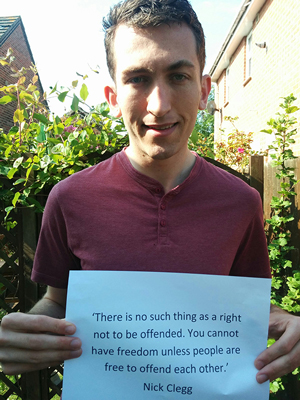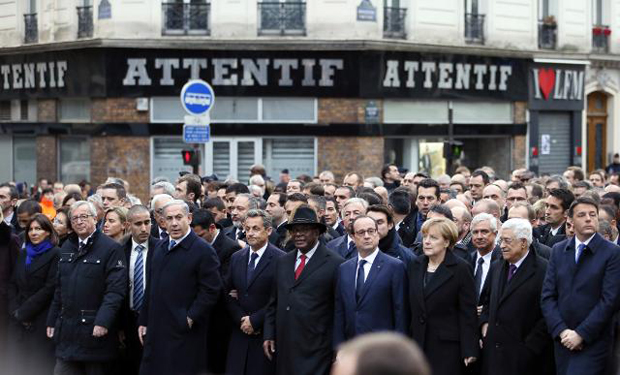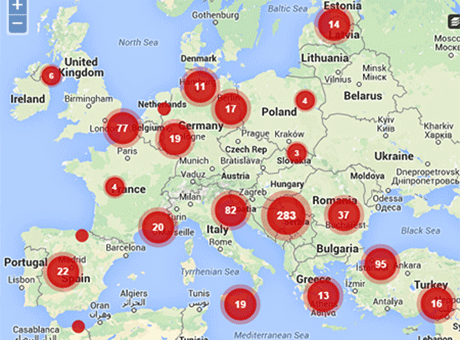25 Jan 2011 | Uncategorized
Farewell Andy Gray, the former Scotland international with a penchant for dull jokes about women and the offside rule.
Gray has been sacked by Sky Sports after videos of him emerged on the Internet speaking off air: more than once, apparently, Gray had questioned assistant referee Sian Massey’s understanding of the offside rule.
After journalist James MacIntyre unearthed footage of Gray making a slightly off colour-joke today, the writing was on the wall for the former Everton star.
The reaction seems, so far, to be pretty unsympathetic. But one can’t help feeling queasy about the dismissal. Were Gray’s comments made on air? No. Has anyone at Sky Sports ever complained to human resources about Gray before? We haven’t been told. Will Richard Keys and others who took part in these conversations also be sacked? We’ll see.
But at the moment, Gray looks like a victim of Sky brand management. More worryingly, this adds to a culture where the internet has moved from a tool for popular free expression to a tool of citizen surveillance. Be careful what you say: it’ll probably end up on YouTube.
17 Aug 2015 | mobile, News and features, United Kingdom, Youth Board
The new cohort of the Index on Censorship youth advisory board was launched last month. The board is already participating in discussions on Facebook.
Members of the board were asked to write a blog discussing one free speech issue in their country. The resulting posts exhibit a range of challenges to freedom of expression globally, from UK crackdowns on speakers in universities, to Indian criminal defamation law, to the South African Film Board’s newly published guidelines.
In the first of a series of posts, youth board member Matthew Brown explores mass surveillance in the UK.

Matthew Brown is a member of the Index youth advisory board. Learn more.
I don’t often begin writing by quoting Herman Goering but on one account he was worryingly accurate. Goering stated that: “The people can always be brought to the bidding of the leaders. All you have to do is tell them they are being attacked and denounce the pacifists for lack of patriotism and exposing the country to danger. It works the same way in any country.”
Increasing levels of surveillance are often justified as essential in protecting us from imminent attack but the recent revelation that GCHQ spied illegally on Amnesty International, an organisation relying upon the secrecy of their communications with human rights defenders, demonstrates the extent to which state surveillance methods are now out of control.
It is easy to scorn states known for their dictatorial regimes but our society has only progressed to its current position through holding the state to account. If we fail to continue to do so, then the slide towards a world in which freedom of expression is restricted at any given moment the government decides appropriate is inevitable. The interception of the correspondence of NGOs raises the worrying question of how these organisations can continue their crucial work if their confidential correspondence is likely to end up out of their hands.
Matthew Brown, UK
Related:
• Tom Carter: No-platforming Nigel
• About the Index on Censorship youth advisory board
• Facebook discussion: no-platforming of speakers at universities
1 May 2015 | Denmark, European Union, France, Germany, Greece, Hungary, Ireland, Italy, Macedonia, mobile, News and features, Poland, Spain, Turkey, Ukraine, United Kingdom

As we approach World Press Freedom Day, the right to freedom of expression will again be celebrated as an inalienable European value across the continent — by the public, the media and politicians alike. But to many, this will mean little more than engaging in a well trodden mental routine. We hardly consider the difficulties that freedom of expression faces in practice.
In the first part of 2015, more than a third of journalist killings in the word took place in two European countries; France and Ukraine. If it is true that Europe’s reactions to the Charlie Hebdo attack — the majority of them very emotional — were salubrious, they simultaneously gave rise to ambiguous situations. Many of the leaders that will on 3 May reaffirm their commitment free expression, supported the same message by taking part in the historic march in Paris on 11 January.
But upon seeing Angela Merkel, some were also reminded that Germany continues to treat blasphemy as a crime — as do Denmark, Spain, Poland and Greece, among others. Ireland, whose Enda Kenny was also in attendance, has a constitution which specifically mentions blasphemy and in 2010 enacted a new law against it. All these European countries defend themselves by saying that they do not apply their laws against “blasphemers”. That argument does not carry much weight when it comes to opposing those countries — Saudi Arabia, Iran, various Asian countries — that have tried to turn blasphemy into a universal crime recognised by the UN.
Spain’s Mariano Rajoy too marched in solidarity, but his government has taken steps to promote changes in the penal code that would “represent a serious threat to freedom of information, expression and the press”.
And what was Viktor Orban doing in Paris? The Hungarian president has reunified Hungary‘s public media so as to better bind them to his own party. Despite being the leader of an EU country, Orban has followed Vladimir Putin’s example. In this experimental model, the Andrei Sakharov Center and Museum is no longer ordered to close as it was in the old days, but rather fined 300,000 roubles (€5,000) for failing to register as a “foreign agent”. One day brings an announcement of compulsory registration for bloggers in Russia; another day, harassment against Russian and Hungarian NGOs perceived as “unpatriotic”.
Turkish Prime Minister Ahmet Davutohlu traveled to Paris, only to later label Charlie Hebdo’s post-attack issue a “provocation”. A reminder: Turkey is an EU candidate country where dozens of journalists have been sentenced to prison, and where various internet sites, including those that dared to reproduce some of Charlie Hebdo’s caricatures, have been blocked.
But also present at the march, were various representatives of European journalists — myself included. Just behind the Charlie Hebdo survivors, we carried a banner with the message “Nous sommes Charlie”.
Walking next to me was Franco Siddi, of the Italian National Press Federation. He talked to me about how imprisonment for defamation is still a possibility in Italy, though the European Court of Human Rights has ruled it a disproportionate punishment.
In my home country Spain too, this possibility of imprisonment remains, even if under Spanish jurisprudence freedom of expression consistently prevails over the demands of plaintiffs. In Italy, the situation is the same, yet my Italian colleagues point out that in 2014 alone, 462 journalists in the country were threatened with legal action for alleged acts of defamation. And while the current proposal for reform being considered foresees eliminating the possibility of jail time, it increases the potential fines.
This is not the only potential legal threat facing European journalists. Long before 9/11, there existed a reflexive habit of passing “urgent” laws under security pretexts, as in the UK during the most difficult years of the Northern Ireland conflict. The current model is the United States’ Patriot Act, which has recently been discussed in France. Meanwhile, in Britain and Spain are debating what free expression activists describe as “gag laws”. In Macedonia, the sentencing of the investigative journalist Tomislav Kezarovski to two years in prison under one of these security inspired laws stands out as a warning sign.
Against this worrying backdrop, across Europe journalists, freedom advocates, campaigners and even politicians are standing up for press freedom. When Gvozden Srecko Flego, member of the Parliamentary Assembly of the Council of Europe, recently highlighted the cases of Russia, Ukraine, Turkey and Azerbaijan as particularly problematic, he also suggested a countermeasure. He recommends “organising annual debates […], with the participation of journalists’ organisations and media outlets” in the respective parliaments of each state.
Media concentration, one of the most serious challenges to media pluralism and free expression in Europe, is being tackled. One proposal, which some international bodies have already accepted, would create a “Media Identity Card” requiring owners to publicly identify themselves and thus create an environment of more open and transparent media ownership.
When defending freedom of expression as a European value, we cannot allow ourselves to simply fall in into mental routines. This World Press Freedom Day we need both words and actions.
Paco Audije is a member of the Steering Committee of the European Federation of Journalists (EFJ)
World Press Freedom Day 2015
• Media freedom in Europe needs action more than words
• Dunja Mijatović: The good fight must continue
• Mass surveillance: Journalists confront the moment of hesitation
• The women challenging Bosnia’s divided media
• World Press Freedom Day: Call to protect freedom of expression
This column was posted on 1 May 2015 at indexoncensorship.org




